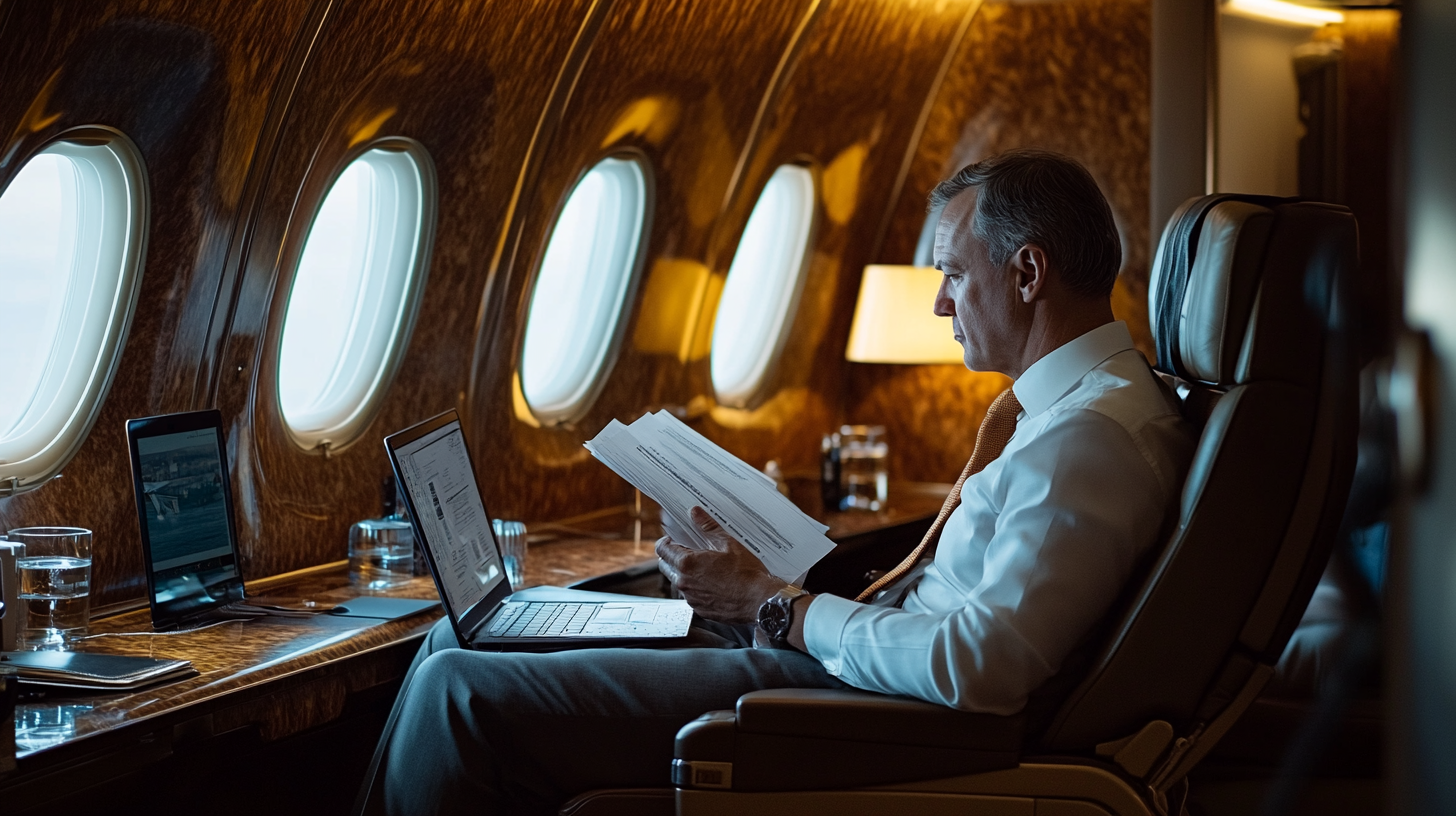Maximizing Your Business Travel Tax Deductions: A Comprehensive Guide

In today’s globalized economy, business travel is more than just a routine aspect of corporate life—it’s a catalyst for building relationships, exploring new markets, and driving company growth. For many professionals and entrepreneurs, hitting the road (or the skies) is essential to stay competitive and connected. However, the costs associated with business travel can quickly add up, impacting profitability. That’s why understanding how to effectively leverage tax deductions for business travel is crucial. By being informed and strategic, you can significantly reduce your taxable income and enhance your company’s financial health.
This comprehensive guide delves deep into the intricacies of business travel tax deductions, providing the insights and knowledge necessary to navigate the complex IRS regulations. From defining what qualifies as a business trip to detailing deductible expenses, this resource equips you with the tools to optimize your savings while remaining fully compliant. Whether you’re planning your next conference attendance or client meeting, being well-versed in these deductions can make a considerable difference in your bottom line.
Understanding Business Travel Tax Deductions

Definition of Business Travel

According to the IRS, business travel occurs when you’re traveling away from your tax home for business purposes. Your tax home isn’t necessarily where you reside; instead, it’s defined as the entire city or general area where your main place of work or business is located. This means that if your primary office is in San Francisco but you live in Sacramento, your tax home is San Francisco. Understanding this concept is vital because only expenses incurred while away from your tax home for business purposes are potentially deductible.
IRS Guidelines on Business Travel Expenses

The IRS permits deductions for ordinary and necessary expenses incurred while traveling for business. “Ordinary” expenses are those that are common and accepted in your trade or business, while “necessary” expenses are those that are helpful and appropriate. It’s important to note that an expense doesn’t have to be indispensable to be considered necessary. However, the IRS explicitly excludes any expenses that are lavish or extravagant, as well as any that are personal in nature. For instance, expenses for luxury accommodations or personal sightseeing trips during business travel are not deductible.
Determining Eligibility for Deductions

The Concept of Tax Home

Your eligibility for business travel deductions hinges on the location of your tax home. To qualify, you must be traveling away from this principal place of business. If you’re unsure about how to determine your tax home, consider where you regularly perform your work or services. Misidentifying your tax home could lead to incorrect deductions and potential issues with the IRS. For a detailed explanation, refer to Guidelines for Determining Your Tax Home for Business Travel Deductions , which provides comprehensive insights into this concept.
Temporary vs. Indefinite Assignments

The IRS differentiates between temporary and indefinite work assignments, which affects your ability to deduct travel expenses:
- Temporary Assignments: Assignments expected to last one year or less are considered temporary. Travel expenses for these assignments are deductible because the employee is considered to be away from their tax home.
- Indefinite Assignments: Assignments expected to last more than one year are considered indefinite. In this case, the new work location becomes your tax home, and travel expenses related to this assignment are not deductible.
Understanding this distinction is essential for accurately claiming deductions. For example, if you’re sent to a different city for a nine-month project, your lodging and meals during that period may be deductible. However, if the assignment extends beyond a year, those expenses become non-deductible. For more information, consult IRS Rules on Temporary vs. Indefinite Work Assignments .
Deductible Expenses

Several types of expenses can be deducted when they meet the IRS criteria for business travel. Properly identifying and documenting these expenses can lead to significant tax savings. Below are categories of common deductible expenses:
Transportation Costs

The cost of transportation to and from your business destination is deductible. This includes airfare, train tickets, bus fares, and vehicle expenses if you drive. For those who prefer driving, expenses such as gas, tolls, and parking fees are deductible. Should you choose to rent a car, the rental fees and associated costs are also eligible. It’s important to keep detailed records of these expenses. For foreign travel, the entire cost of airfare is deductible if specific IRS criteria are met, such as spending more days on business activities than personal ones during the trip. To maximize your deductions, consider consolidating personal and business activities appropriately.
Lodging Expenses

Reasonable lodging expenses incurred while away from your tax home for business purposes are deductible. This includes hotel bills, rental accommodations, and associated taxes and fees. The key is that the costs should be reasonable and necessary for conducting business. Opting for mid-range accommodations instead of luxury hotels may not only save money but also ensure full compliance with IRS guidelines. Remember, the intent is to cover expenses that are essential, not extravagant.
Meal Expenses

Meal expenses incurred during business travel are deductible at a rate of 50% of the actual cost or a standard meal allowance provided by the IRS, known as the per diem rate. Meals should be directly related to the conduct of business. It’s crucial to keep receipts and note the business purpose of the meal, such as meeting with a client or discussing a project with a colleague. For more detailed strategies on maximizing meal deductions, see Optimizing Meal Expenses During Business Travel .
Incidental Expenses

Incidental expenses such as tips, baggage fees, and other miscellaneous costs essential to your business travel are deductible. These expenses should be necessary and directly related to your business activities. For instance, tips to hotel staff, fees for checking luggage, and costs for cleaning and laundry services during your trip can be deducted. Keeping a detailed log of these small expenses can add up to significant deductions over time.
Conventions and Industry Events

Expenses related to attending conventions, seminars, or industry events that benefit your business are deductible. This includes registration fees, materials, and travel costs associated with the event. Special rules apply for events held outside North America; the event must be directly related to your business and as reasonable to hold outside North America as within it. For professionals looking to expand their knowledge and network, attending such events can be both professionally rewarding and tax-efficient. For guidance on international conventions, consult IRS Regulations on Deducting Foreign Convention Expenses .
Non-Deductible Expenses

Not all expenses incurred during travel are deductible. Being aware of non-deductible expenses can help avoid errors on your tax return and potential penalties. Common non-deductible expenses include:
Personal and Lavish Expenditures

The IRS does not allow deductions for personal expenses or costs deemed lavish or extravagant. This includes expenses for personal entertainment, sightseeing, and luxury accommodations that exceed what is considered reasonable for business purposes. For example, attending a concert or visiting tourist attractions during your trip are personal activities and the associated costs are not deductible. Maintaining a clear separation between business and personal expenses is essential.
Family Member Expenses

Expenses for family members accompanying you are generally not deductible unless they are employees of the business, and their travel serves a bona fide business purpose. Simply having a spouse or child travel with you does not qualify for a deduction. If a family member does have a legitimate business role, ensure that their duties are documented, and expenses are substantiated. For more insight, see Deducting Travel Expenses for Family Members in Business .
Special Considerations

Foreign Travel Rules

When traveling outside the United States for business, specific IRS rules determine the deductibility of expenses. To deduct the full cost of international airfare, the trip must meet certain criteria, such as:
- Allocating time primarily to business activities. Generally, if business activities constitute at least 75% of the total trip time, the travel expenses are fully deductible.
- Meeting the requirements for a temporary assignment.
If the trip combines business and personal activities, expenses must be allocated accordingly, and only the business-related portion is deductible. The rules surrounding foreign travel can be complex, so it’s advisable to consult IRS Publication 463 or In-Depth Guide to Foreign Business Travel Deductions for detailed guidance.
Military Reservists

Members of the military reserves can claim unreimbursed travel expenses when traveling more than 100 miles away from home for reserve duties. These expenses include transportation, lodging, and meals, and are typically reported on Form 2106. This provision acknowledges the unique travel requirements of reservists and provides tax relief for associated expenses.
Self-Employed Individuals vs. Employees

Self-employed individuals report travel expenses on Schedule C or Schedule F, depending on their type of business. They can deduct allowable travel expenses directly against their business income, potentially reducing self-employment taxes as well. Employees, on the other hand, generally cannot deduct unreimbursed expenses unless they are under an “accountable plan” with their employer. Under an accountable plan, expenses are reimbursed, and the employer can deduct them as business expenses. For employees, it’s essential that the employer reimburses expenses appropriately for them to be deductible by the business. For more details on accountable plans, refer to Understanding Accountable Plans for Business Expenses .
Record Keeping and Compliance

Importance of Detailed Documentation

Maintaining accurate and detailed records of all business travel expenses is crucial for compliance and to substantiate deductions in the event of an IRS audit. The IRS requires documentation that substantiates the amount, time, place, and business purpose of each expense. This includes keeping receipts, invoices, credit card statements, and logs of business activities conducted during travel. Utilizing an organized system for record-keeping can save time and stress. Technologies such as expense tracking apps or software can streamline this process. For suggestions on effective tools, consult Top Expense Tracking Tools for Business Travelers .
Utilizing Professional Tax Advisors

Given the complexity of tax regulations, consulting a professional tax advisor or certified public accountant (CPA) is highly recommended. They can provide clarity on eligible deductions, ensure compliance with IRS guidelines, and help maximize your tax savings. A professional can also stay abreast of any changes in tax laws that may affect your business. This investment can provide peace of mind and potentially save money in the long run by avoiding costly mistakes.
Maximizing Tax Savings

Planning Business Travel Effectively

Strategic planning of business travel can enhance your ability to claim deductions and maximize tax savings. To ensure that your travel is fully deductible:
- Ensure the trip serves a legitimate business purpose: Clearly define the business objectives of your travel, such as meeting clients, attending conferences, or scouting new business locations.
- Allocate the majority of your trip days to business activities: The IRS looks at the primary purpose of the trip. If most days are spent on business, the travel expenses are more likely to be fully deductible.
- Document meetings, industry events, and networking activities: Keep itineraries, agendas, and confirmation of appointments to substantiate the business nature of your trip.
By thoughtfully planning your travel, not only can you maximize deductions, but you can also make your trips more productive. For additional strategies, see Effective Planning Tips for Deductible Business Travel .
Utilizing Tools and Resources

Leveraging tools that assist in tracking and documenting travel expenses can streamline the process and ensure no deductible expenses are overlooked. Expense management platforms, mobile apps, and even simple spreadsheets can be valuable for maintaining accurate records. Some tools offer features like receipt scanning, real-time expense tracking, and report generation, which can simplify tax preparation and filing. For a comparison of popular options, refer to Best Expense Management Platforms for Small Businesses .
Final Thoughts

Understanding and appropriately utilizing business travel tax deductions can lead to significant savings for your company. By adhering to IRS guidelines, maintaining meticulous records, and seeking professional advice when necessary, you can confidently navigate the complexities of business travel expenses. Proper financial management not only reduces your tax liability but also allows for better allocation of resources, contributing to the overall success of your business.
Follow us back to Seat 5A for more insights and updates on optimizing your business travel strategies.
This blog post was AI-written / human assisted.






